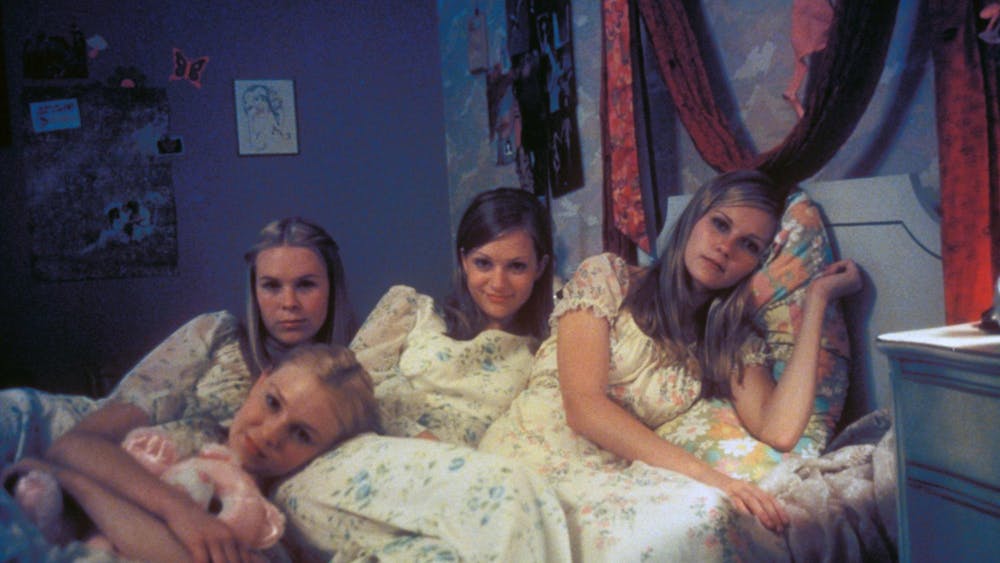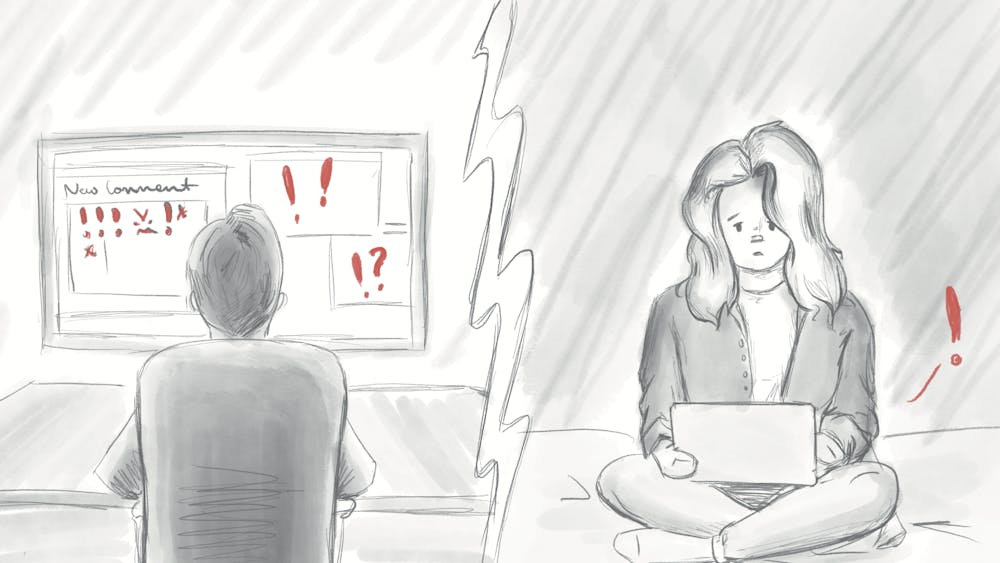Disclosure: Miriam J. Woods volunteers for Middle Way House.
This year, IU has begun posting informational flyers about sexual assault and dating violence in bathroom stalls on campus.
Unlike the flyers that had been posted in bathrooms last year, these actually mention the topic of domestic and dating violence. This is a laudable improvement on the part of the administration.
The flyers explain that domestic abuse “can happen in any relationship, especially in couples who are married, living together or dating. It can include physical, sexual, emotional, economic or psychological actions or threats of action intended to gain or maintain power and control over their partner.”
When domestic or dating abuse is physical, it is usually, though not always, fairly easy to recognize. Most people already understand that physical violence in the context of an intimate relationship is unacceptable and wrong.
But what about emotional and psychological abuse? These can be some of the most difficult types of abuse to recognize, but also some of the most damaging.
What do emotional and psychological abuse actually look like?
Since abuse is all about power and control, abusers will often try to isolate their victims. If your partner demands that you spend all of your time with him or her or prevents or discourages you from talking to or spending time with friends or family, you might be in an abusive relationship.
Many emotionally and psychologically abusive behaviors can appear to be the result of one partner’s intense love for the other. But these behaviors actually stem from a desire to maintain control of an intimate partner.
Examples of this are extreme jealousy, a refusal to allow the victim to have friends of the opposite sex, unfounded accusations of cheating and demanding to know where the victim is and who she or he is with at all times.
Abusers might insist they do these things out of love. But such extreme jealousy is a sign of insecurity, not love.
Another abusive tactic is gas-lighting, or making you question your own perceptions of reality. The term comes from a 1938 play — a film version appeared in 1944 — in which a man drives his wife crazy by dimming the gas lights in their home and then denying that there had been any change.
If your partner makes you feel that you can’t trust your own perceptions, you might be in an abusive relationship.
Refusing to take responsibility for one’s own actions, behaviors or choices is a hallmark of abusive individuals. The same can be said of blaming victims for their abuse.
There is no shame in being a victim of relationship abuse. The shame lies solely with the abuser.
If you are being abused, please understand that it is not your fault. As much as your abuser might want you to believe otherwise, there is absolutely nothing you can do, say or change to make your partner stop abusing you. That has to be their choice.
What you do have control of is whether or not to tolerate an abusive partner’s unacceptable behavior. And there is help available.
Middle Way House in Bloomington offers a 24-hour crisis line, support groups, legal advocacy, emergency and transitional housing and numerous other services.
The National Domestic Violence Hotline (1-800-799-7233) is also available 24 hours a day and is anonymous and confidential.
Relationships should make us feel happy and secure, not anxious and afraid. Don’t be afraid to reach out for help.
woodsmj@indiana.edu





